Corrections and Retraction Policy
Environmental Reports is committed to maintaining the accuracy and integrity of the scholarly record. We recognize that errors can occasionally occur in published content, and we have established a transparent policy to address corrections and retractions when necessary.
Corrections
If an article contains errors that do not affect the overall results or conclusions, but may mislead readers or need clarification, Environmental Reports will publish a correction. These may include:
Minor errors (such as typographical mistakes or factual inaccuracies) that do not change the scientific meaning or interpretation.
Clarifications to improve the understanding of the article without altering the original findings.
Corrections will be linked to the original article and will be made visible on the journal’s website to ensure transparency.
Retractions
A retraction will be issued in cases where the scientific integrity or credibility of an article is fundamentally compromised. Retractions are considered in the following cases:
Plagiarism or ethical misconduct.
Major errors that invalidate the research results or conclusions.
Data fabrication or falsification.
Undisclosed conflicts of interest that compromise the integrity of the research.
When a retraction is issued, the original article will remain on the journal’s website with a watermark stating “RETRACTED” and an accompanying retraction notice explaining the reason. Retractions will be clearly marked to differentiate them from corrections.
Responsibility for Corrections and Retractions
Corrections or retractions can be initiated by:
The authors of the article.
The editorial team based on reviewer or reader feedback.
External parties such as readers or other researchers.
The final decision to issue a correction or retraction lies with the Editor-in-Chief, following consultation with the editorial board and adherence to COPE (Committee on Publication Ethics) guidelines.
Environmental Reports ensures that all updates to published content are managed transparently to maintain the highest standards of academic integrity.
COPE guidelines are available here: https://doi.org/10.24318/cope.2019.1.4
Join us in our efforts to shape a sustainable future through research and innovation.









